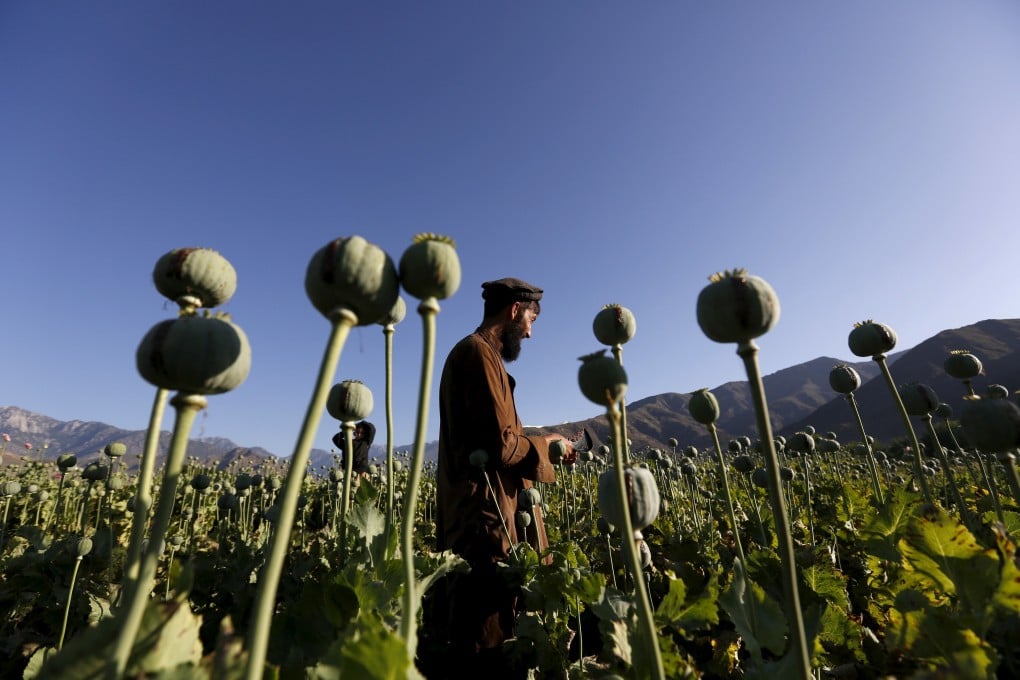China, the Taliban and the threats from the illegal drug trade
- Taxes on opium farmers have been a big source of income for the militant group, which has pledged to stamp out the heroin trade
- Drug smuggling poses security challenges for China, analysts say

Trafficking in poppy-based drugs and methamphetamine remains the Taliban’s largest single source of income, according to various estimates, and is likely to remain so with the prospect of international sanctions on the militant group.
Wang Jinguo, an international affairs expert with Lanzhou University, said China needed to focus on ensuring the trade was not revived in the aftermath of the US pull-out from the Central Asian state.
“After the US withdrawal [from Afghanistan] China’s anti-narcotics agencies need to pay close attention to preventing drugs from Afghanistan flowing into China through the northern route again,” state news agency Xinhua quoted Wang as saying last month.

05:21
Global aid organisation intent on staying in Taliban-run Afghanistan to ease humanitarian crisis
The United Nations Office of Drugs and Crime said in June that Afghanistan accounted for around 80 per cent of global opium and heroin supplies.